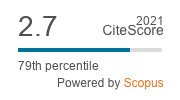Reviewer Guideline
Welcome to the Results in Nonlinear Analysis (RNA) reviewer community. Your expertise and commitment are crucial to maintaining the high quality and integrity of the journal. The following guidelines are intended to assist you in conducting a thorough and constructive peer review.
1. Scope and Relevance
- Content Fit: Ensure that the manuscript aligns with the scope of the journal, focusing on original research and significant findings in the field of nonlinear analysis.
- Novelty and Impact: Evaluate whether the research contributes new knowledge, methodologies, or insights to the field. Manuscripts should present a clear and meaningful advancement in nonlinear analysis.
2. Technical Quality
- Scientific Rigor: Verify that the research is methodologically sound, with clear hypotheses, well-designed experiments or analyses, and robust statistical methods.
- Mathematical Precision: Check for accuracy in the mathematical derivations, proofs, and use of notation. Ensure that the results are presented clearly and logically.
- Data and Results: Assess the adequacy of data presentation, including tables, figures, and supplementary materials. The results should be reproducible and well-supported by the data.
3. Structure and Presentation
- Abstract and Introduction: The abstract should concisely summarize the research question, methods, results, and implications. The introduction should provide a clear background, stating the significance of the study and its objectives.
- Clarity and Language: The manuscript should be well-organized and written in clear, professional English. Look for coherence, appropriate use of technical terms, and correct grammar.
- Figures and Tables: Evaluate the quality and relevance of figures and tables. They should enhance the understanding of the text and not duplicate information.
4. Ethical Considerations (if any)
- Originality and Plagiarism: Check for any indication of plagiarism or self-plagiarism. The work should be original and not previously published.
- Conflicts of Interest: Report any potential conflicts of interest you might have with the authors or the content of the manuscript.
- Ethical Approval: Ensure that any studies involving human participants, animals, or sensitive data have appropriate ethical approval and consent.
5. Review Process and Recommendations
- Timeliness: Strive to complete your review within the agreed timeframe. If you require more time or cannot review the manuscript, notify the editor promptly.
- Constructive Feedback: Provide detailed, constructive feedback to help authors improve their manuscript. Highlight both strengths and areas for improvement. Use respectful and professional language.
- Recommendation: Based on your evaluation, select one of the following recommendations:
- Accept as is
- Minor revisions required
- Major revisions required
- Reject
6. Confidentiality
- Treat the manuscript and all associated communications as confidential. Do not share or discuss the manuscript with anyone outside the editorial team.
7. Further Assistance
- If you have any questions or require clarification during the review process, please contact the editorial office.



